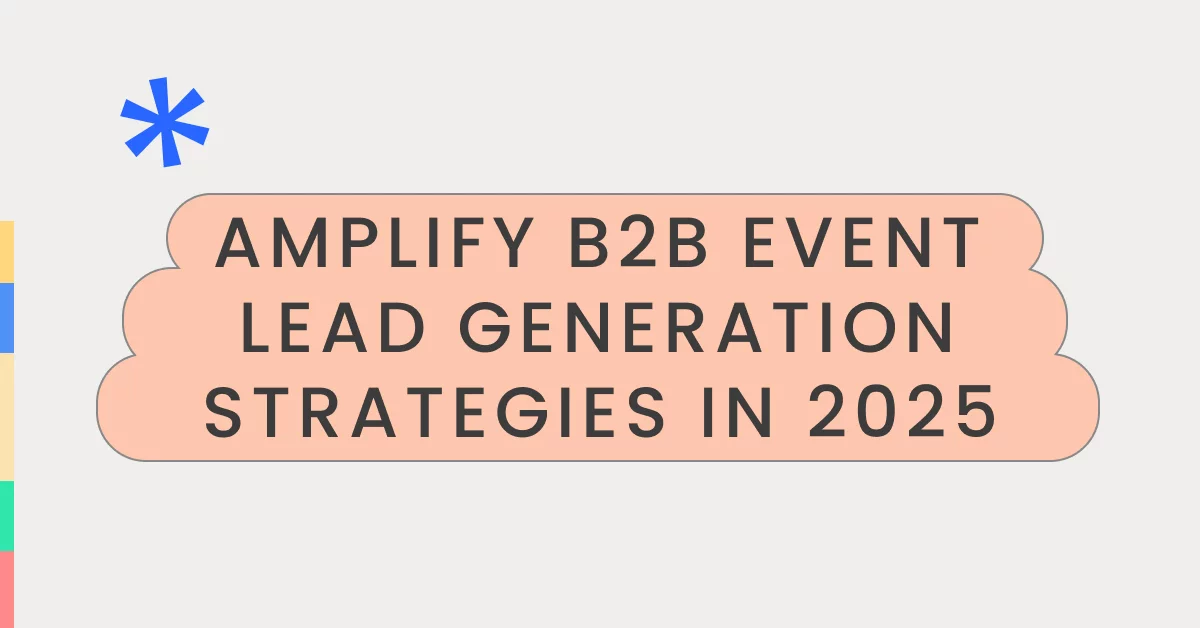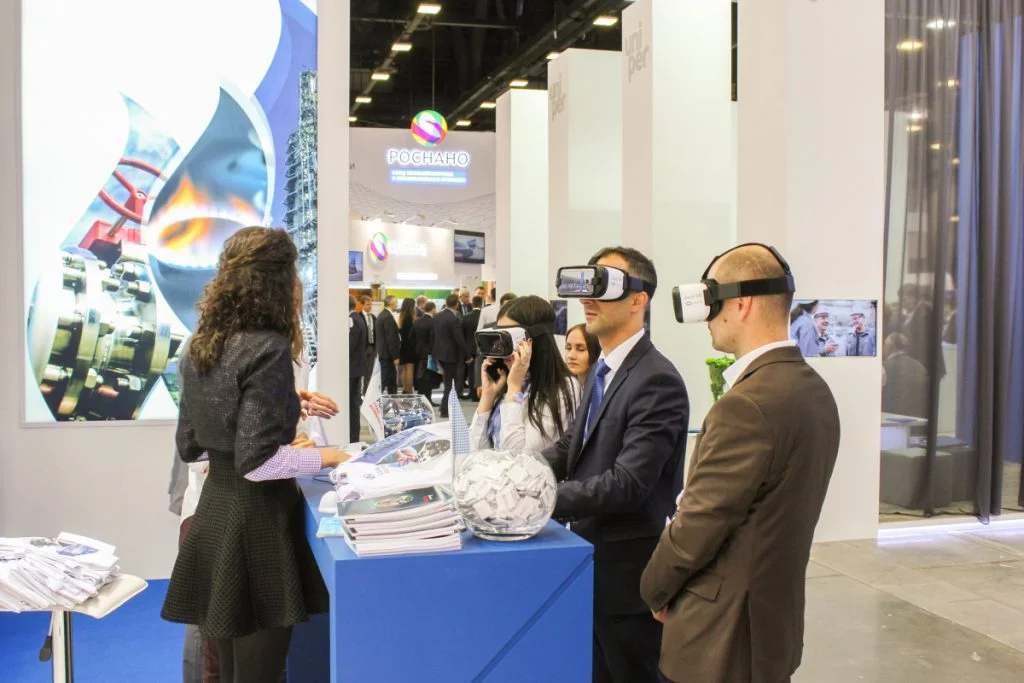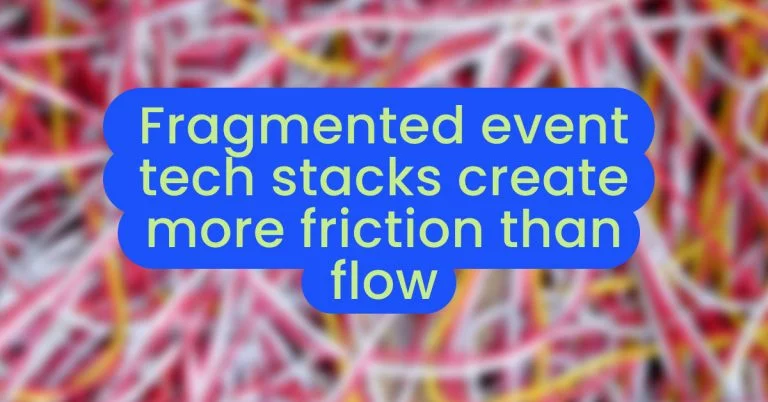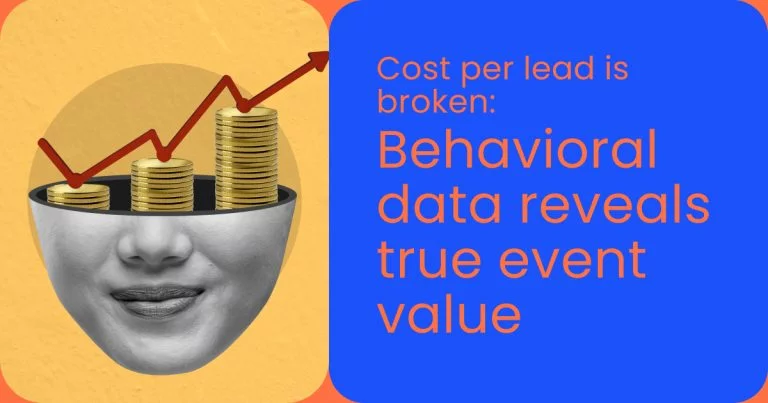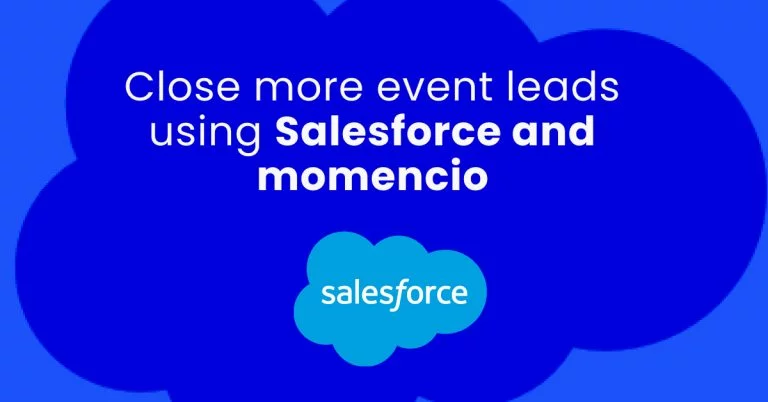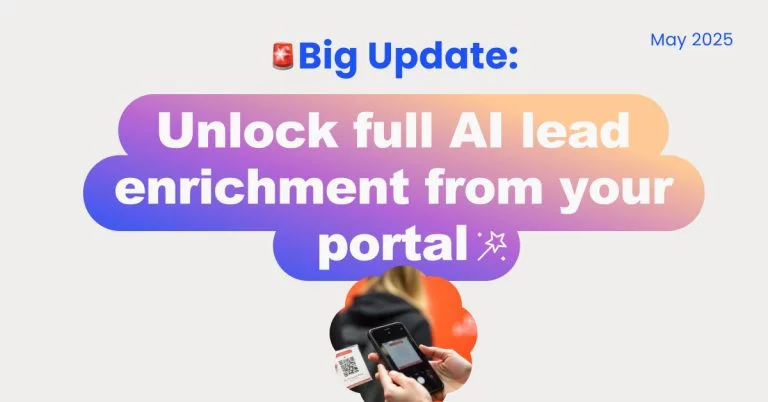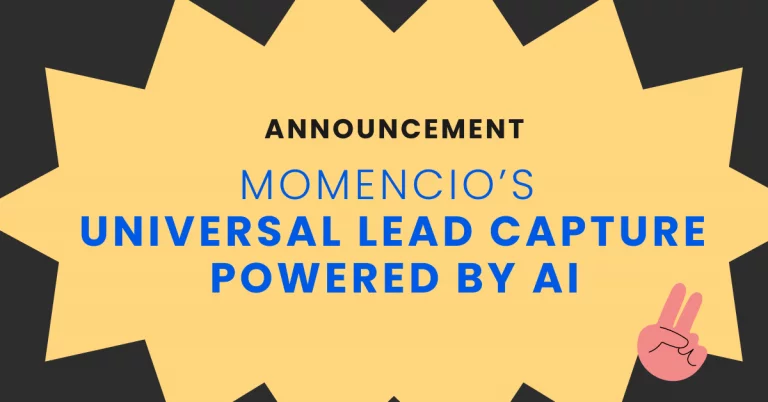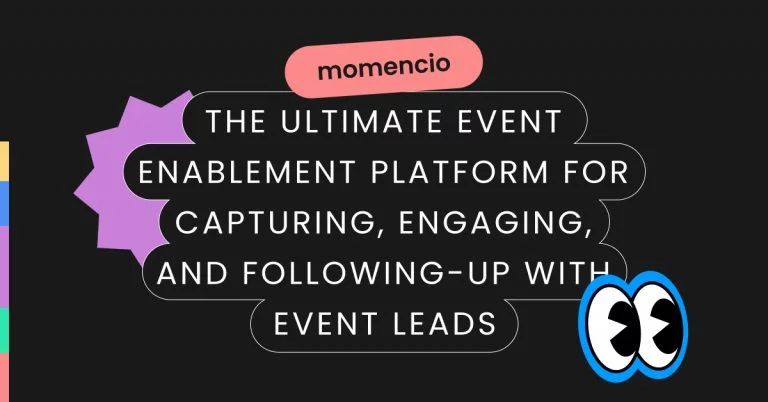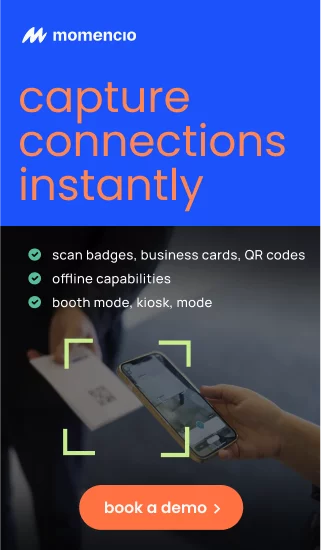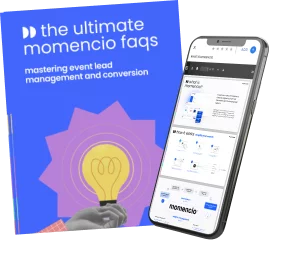In 2025, amidst the rapid evolution of AI, B2B event lead generation marketers are constantly seeking innovative strategies to stand out and drive meaningful engagement during events. A compelling statistic from a recent study indicates that over 65% of marketers cite lead generation as their top challenge when executing B2B marketing events (Source: MarketingProfs). This statistic underscores the crucial role of strategic planning and execution in converting event attendance into tangible business opportunities.
To navigate this challenge, it’s essential to delve into the core of B2B event lead generation strategies, especially as we move deep into 2025. This guide aims to offer an in-depth exploration of proven techniques and execution tactics that can significantly amplify lead generation outcomes from B2B events. By embracing a blend of traditional and digital marketing efforts, focusing on personalized attendee experiences, and leveraging the latest in event technology, marketers can unlock new dimensions of lead generation effectiveness.
Beyond the strategies and tools, this guide will explore the integration of artificial intelligence and automation in streamlining lead capture and nurturing processes, ensuring that every lead is maximized to its fullest potential. With the right approach, B2B marketers can transform event challenges into opportunities, driving not just lead quantity but also quality, thereby securing a competitive edge in the dynamic business landscape of 2025.
TL;DR: Maximize B2B event lead generation with strategies like targeted outreach, personalized engagement, and data-driven follow-ups. This guide helps you leverage technology, from lead capture tools to CRM integration, ensuring your event marketing efforts result in high-quality leads and improved conversions.
Understanding B2B event lead generation in the AI era
Importance of hybrid event formats
The digital transformation has reshaped the B2B event landscape, introducing hybrid event formats as a cornerstone of contemporary lead generation strategies. Hybrid events combine the best of both worlds: the reach and accessibility of virtual events with the engagement and intimacy of in-person experiences. This dual approach not only extends the event’s footprint globally but also caters to diverse preferences and the availability of potential leads.
In 2025, the expectation isn’t just attendance; it’s engagement and interaction that drive leads. Hybrid formats offer multiple touchpoints—virtual booths, live chats, webinars, and in-person meetings—each serving as an opportunity to capture leads. They also provide a rich dataset, from attendee behavior to engagement metrics, which is invaluable for refining lead-generation strategies.
Adopting hybrid formats signifies understanding the evolving dynamics of B2B interactions. Events now are more than a physical space—they’re an ecosystem of connected experiences, reaching attendees wherever they are, making every interaction count towards lead generation.
Leveraging Technology for Enhanced Lead Capture
B2B event lead generation has evolved significantly in the AI era, with hybrid event formats emerging as a cornerstone for success. By blending the physical connection of in-person events with the accessibility of virtual experiences, hybrid formats expand reach, cater to diverse attendee preferences, and create multiple engagement touchpoints.
In this dynamic setup, AI enhances the attendee journey by offering predictive insights, real-time personalization, and data-driven lead tracking. For instance, virtual booths with AI-powered chatbots or in-person sessions enriched by real-time analytics provide actionable data that inform follow-up strategies. Hybrid formats also optimize ROI, allowing event organizers to capture and nurture leads globally while delivering tailored experiences that resonate deeply.
Strategic planning for effective B2B event marketing
Identifying your target audience
The foundation of any successful B2B event marketing strategy lies in accurately identifying the target audience. This involves understanding not just who they are but also their needs, challenges, and how they seek solutions. Creating detailed persona profiles that include job roles, industry challenges, preferred content formats, and engagement channels can significantly enhance the precision of your event marketing efforts.
Identifying your target audience helps tailor the event’s theme, content, and marketing messages to resonate deeply with potential leads. It also informs the choice of event platforms and formats, ensuring that your event is accessible to and attended by your key demographics. Utilizing data analytics and market research is crucial in this phase to validate assumptions and uncover insights about your target audience.
Crafting compelling event content and messaging
Once the target audience is clearly defined, the next step is to craft compelling event content and messaging that speaks directly to their interests and needs. This content, whether for pre-event marketing, event presentations, or follow-up communications, should articulate the value proposition of attending the event and how it addresses the specific challenges faced by the audience.
Storytelling plays a pivotal role here, transforming abstract benefits into relatable narratives that captivate and engage. Utilizing various content formats—videos, infographics, blogs, and interactive sessions—can also help maintain interest and engagement, both leading up to and during the event.
Compelling content and messaging are not just about attracting attendees; they’re about setting the stage for meaningful interactions and exchanges that facilitate lead capture and nurturing. It’s about making every piece of content a step towards a deeper relationship with potential leads.
For a more detailed exploration, check out our article: 10 Essential Event Planning Tips for a Successful Event.
Maximizing leads at B2B events: execution tactics
Engaging attendees with interactive experiences
In the bustling environment of B2B events, creating memorable, interactive experiences is key to engaging potential leads. Interactive experiences, from VR demonstrations to live product tutorials, not only captivate attention but also foster deeper connections between your brand and the attendees. These immersive activities can significantly enhance brand recall and lead to a willingness to engage post-event.
Live polls, Q&A sessions, and interactive workshops encourage participation and provide valuable insights into the audience’s interests and preferences. Gamification, through leaderboards, quizzes, and challenges, can further incentivize engagement, turning passive attendees into active participants. Each interaction is an opportunity to capture lead information, making the engagement doubly beneficial.
Adopting universal lead capture (ULC) technologies
The adoption of Universal Lead Capture (ULC) technologies is critical for efficiently managing and maximizing lead generation across various event formats. ULC systems offer a streamlined, standardized process for capturing lead data, regardless of the source—be it in-person events, virtual booths, or hybrid experiences. This ensures that valuable lead information is captured accurately and consistently.
ULC technologies enable real-time data capture and integration into lead management systems, facilitating immediate follow-up actions and lead scoring. By eliminating manual data entry and disparate lead capture methods, ULC technologies not only improve lead data quality but also enhance the speed and efficiency of the lead nurturing process. This technological approach is indispensable for businesses aiming to leverage the full potential of their B2B event strategies in 2025.
Uncover further strategies and insights in our dedicated piece: 10 proven strategies for boosting event ROI and engagement.
Post-event strategies for B2B lead nurturing
Timely follow-up and personalization
The immediacy and personalization of post-event follow-up communications are critical in converting event leads into sales opportunities. Crafting personalized follow-up messages that reference specific interactions or interests expressed during the event can significantly increase the likelihood of engagement. Utilizing automation tools for timely communication ensures that your brand stays top-of-mind while the event experience is still fresh in the attendees’ minds.
Segmenting leads based on their engagement level, interests, or potential value allows for more targeted and relevant follow-up strategies. Personalized content offerings, such as whitepapers, case studies, or webinar invitations, aligned with each segment’s specific interests, further enhance the effectiveness of these communications.
Enhance your understanding with additional information available in our article: Guide to growth through post-event data utilization
Integrating leads into CRM for effective nurturing
Seamless integration of event leads into Customer Relationship Management (CRM) systems is vital for effective and efficient lead nurturing. This integration allows for a comprehensive view of each lead’s journey, enabling personalized nurturing paths based on their interactions and engagement level. CRM systems facilitate tracking the progress of leads through the sales funnel, ensuring that no opportunities are lost.
Automated workflows within CRM can trigger specific actions based on lead behavior, such as sending targeted follow-up emails, scheduling sales calls, or alerting sales representatives about high-potential leads. This level of automation and integration ensures that leads are nurtured consistently and systematically, increasing the chances of conversion.
The strategies outlined in maximizing leads at B2B events and post-event nurturing underscore the importance of engagement, personalization, and technology in driving successful lead-generation efforts. As we advance, leveraging AI and automation will play a pivotal role in enhancing these strategies, making the process more efficient and effective in converting leads into valuable business outcomes.
Analyzing and optimizing your event lead generation efforts
Utilizing data for event lead generation strategy refinement
The key to continuously improving your B2B event lead generation strategy lies in the meticulous analysis of data collected during and after the event. This data provides invaluable insights into what resonated with your audience, which sessions or booths attracted the most engagement, and how effectively the leads were captured and nurtured. By closely examining these metrics, you can identify patterns and trends that inform strategic adjustments for future events.
Segmentation analysis, conversion rates, and engagement metrics allow you to pinpoint the most effective elements of your event strategy, as well as areas needing improvement. This could involve refining your targeting criteria, adjusting your content strategy, or reevaluating the channels used for promotion and engagement. Data-driven decisions ensure that each iteration of your event strategy is more aligned with your target audience’s needs and preferences, thereby enhancing the overall effectiveness of your lead-generation efforts.
Tools and technologies for measurement and analysis
Leveraging the right tools and technologies is crucial for effectively measuring and analyzing your event lead generation efforts. Platforms that offer comprehensive analytics dashboards, real-time feedback, and lead-tracking capabilities can significantly streamline the process of data analysis. CRM systems, integrated with lead capture solutions, provide a centralized repository for all lead-related data, facilitating detailed analysis and reporting.
Additionally, event management software with built-in analytics features can offer insights into attendee behavior, session popularity, and overall event engagement. Tools like Google Analytics and specialized event analytics platforms enable deeper dives into web traffic, digital engagement, and conversion paths related to the event. Adopting these technologies not only simplifies the analysis process but also provides a more holistic view of your event’s impact on lead generation and nurturing.
Leveraging AI and automation in B2B event lead generation
The future of event marketing with AI
The future of event marketing is being revolutionized by AI agents, transforming how businesses engage with attendees and optimize their strategies. These intelligent agents are reshaping every phase of event marketing, from pre-event planning to post-event follow-ups. AI agents can analyze massive datasets to predict attendee behavior, segment audiences, and recommend personalized content, ensuring that every interaction feels tailored and meaningful. At events, AI-driven chatbots and virtual assistants offer real-time support, answer attendee questions, and facilitate seamless networking opportunities. Post-event, AI agents streamline lead nurturing by automating personalized communications and identifying high-value prospects through advanced lead scoring. By harnessing the power of AI agents, event marketers can deliver smarter, more engaging experiences that drive conversions and maximize ROI.
Discover momencio’s Universal Lead Capture: Maximizing event impact.
Automating lead nurturing and engagement
Automation plays a pivotal role in streamlining lead nurturing and engagement, ensuring consistent and timely interactions with your leads. Automated email sequences, triggered by specific actions or behaviors, can keep the conversation going with minimal manual intervention. Chatbots and virtual assistants powered by AI can provide instant responses to attendee inquiries, offering a seamless engagement experience around the clock.
Integrating automation tools with your CRM system allows for the automatic update of lead profiles based on new interactions or data captured during the event. This ensures that your sales and marketing teams have access to the most current information, enabling them to tailor their outreach and follow-up strategies more effectively.
By combining the analytical power of AI with the efficiency of automation, B2B marketers can not only enhance their event lead generation strategies but also ensure a more personalized and engaging journey for their leads, from initial capture to final conversion.
Dive deeper into this topic by reading our comprehensive guide: Trade Show Badge Scanner Apps For Lead Capture. An In-Depth Guide for 2025 and uncover additional strategies and tips in our feature article: The Role of Technology in Maximizing Event ROI
Conclusion: future-proofing your B2B event marketing strategy
As we navigate through the evolving landscape of B2B marketing, the importance of dynamic, data-driven event strategies becomes increasingly clear. The future of successful event marketing lies in our ability to adapt, innovate, and leverage the latest technologies to enhance lead generation, engagement, and conversion. By embracing hybrid event formats, integrating advanced lead capture technologies, and employing AI-driven insights and automation, businesses can not only meet the current demands of their target audience but also anticipate future trends.
The journey toward future-proofing your B2B event marketing strategy involves continuous learning, experimentation, and refinement. The goal is to create engaging, memorable experiences that resonate with your audience, foster meaningful connections, and ultimately drive business growth. In this ever-changing digital age, staying ahead means being agile, responsive, and ready to adopt innovative solutions that differentiate your events and maximize lead generation outcomes.
Engage with advanced tools for event success
In the quest for unparalleled event marketing success, embracing advanced tools and technologies like momencio is not just an option; it’s a necessity. Whether you’re looking to refine your lead generation strategy, enhance attendee engagement, or optimize your post-event nurturing process, the right set of tools can make all the difference. We encourage you to explore the possibilities that AI, automation, and data analytics offer. By integrating these advanced solutions into your event marketing toolkit, you’re not just preparing for the future—you’re shaping it.
To embark on this journey and revolutionize your B2B event marketing strategy, consider engaging with platforms that offer the cutting-edge features discussed in this guide. Leverage the power of data, personalize your attendee experiences, and automate your lead management processes for efficiency and effectiveness. Start today by exploring solutions that align with your goals and set the stage for your event marketing success. Book a demo with momencio
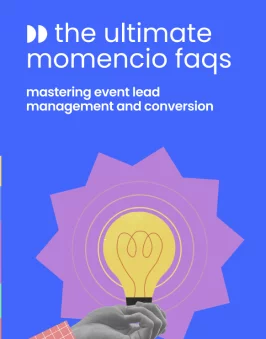
FAQs
- How can I measure the ROI of my B2B events?
- Measure ROI by tracking key metrics such as lead quantity and quality, conversion rates, attendee engagement levels, and overall sales generated from event leads. Employing event analytics tools can provide valuable insights into these metrics.
- What strategies can enhance attendee engagement at my events?
- Enhance engagement by offering interactive experiences, personalized content, and networking opportunities. Utilize technology such as mobile apps, VR, and AI-driven recommendations to create immersive experiences.
- How can I effectively follow up with leads post-event?
- Employ automated email sequences personalized based on the lead’s interactions during the event. Integrate leads into your CRM for ongoing nurturing with tailored content and timely communications.
- Can AI really improve my event marketing strategy?
- Yes, AI can analyze vast amounts of data to predict attendee preferences, automate personalized communications, and streamline lead management, ultimately enhancing your strategy’s effectiveness.
- What are some essential tools for B2B event marketing?
- Key tools include event management platforms with integrated analytics, CRM systems, email marketing automation software, lead capture technologies, and AI-driven insights and personalization engines.
Interesting facts from research
- Events account for a significant portion of B2B marketing budgets, with companies allocating up to 21% of their budget to events.
- Hybrid events are on the rise, with 73% of event planners intending to continue organizing hybrid events post-pandemic to increase reach and engagement.
- The use of AI in event marketing can increase lead conversion rates by up to 30% by facilitating more personalized and timely interactions.
- Post-event lead nurturing is critical, with statistics showing that nurtured leads make 47% larger purchases than non-nurtured leads.
